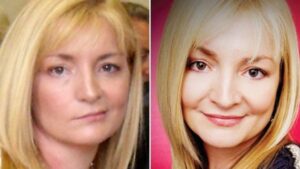Here we shall discuss about homeopathy treatment of Autism online and what is the homeopathy medicine of Autism.
In homeopathy treatment there are some excellent medicine for Autism but before the homeopathy treatment of Autism online you will have to know the cause of Autism and what homeopathy says about Autism.
Autism
OVERVIEW
Autism is the general term used for Autism Spectrum Disorders, because Autism is not a singular disability. They are a range of complex conditions of the neurodevelopmental type, and consist of combinations of various symptoms in differing intensities and numbers.
The main areas of impairment in this spectrum include
- Social Performance
- Interpersonal Relationships,
- Verbal and Non-verbal communication
- Patterns of behaviour.
WHAT HAPPENS IN AUTISM SPECTRUM DISORDERS?
QUICK LOOK
- Delayed mental and physical development
- Social and interpersonal impairments
- Defects in verbal and non-verbal communication
- Repetitive and stereotyped patterns of behavior
- Dislike towards any change in routine or environment
WHAT CAN AUTISM LEAD TO?
- Depression
- Behavioural problems
- ADHD
- Anxiety
- Seizures
- Problems related to sensitivity
- Tuberous sclerosis
HOW WELL HOMEOPATHY WORKS IN AUTISM
While no other system of therapeutics can make a significant difference in the autistic child or adult, Homeopathy shows immense promise. This is because the approach of Homeopathy towards the treatment of any disease, whether as simple as a common cold or as complex as Autism, has a holistic essence.
Instead of a “piecemeal” manner of treatment, Homeopathy considers the entire constitution, physical and mental attributes and qualities of the patient, and then prescribes the remedy most suited to the patient.
Also, the carefully chosen homeopathic remedy works at the deeper Psycho-neuro-endocrine as well as genetic level to bring about a positive change in the autistic individual.
INTRODUCTION
It was in the 1940s that Autism was first brought into the limelight by American child psychologist, Dr. Leo Kanner. Around the same time, Dr. Hans Asperger also brought to notice the disease we know as Asperger’s Syndrome today.
Autism Spectrum Disorder currently affects 1% of the world’s population and the count is rising. The prevalence of Autism in children in the United States has increased by a mindboggling 119.4% from the year 2000 to the year 2010, and the cost of services has crossed $250 billion annually in the U.S. alone! It is one of the fastest-growing developmental disabilities in the world.
SYMPTOMS
THE SYMPTOMS OF AUTISM TYPICALLY SCALE 3 AREAS OF INTEREST:
Social Behaviour
- Absence of social smiling: This is usually the first thing a mother would notice. Infants generally begin smiling and responding to social interactions by 2-3 months of age. But autistic infants fail to engage in these primary social dealings. They show a lack of social interest, do not respond to their names and begin talking late.
- Loner behavior: Autistic children, unlike other children of their age, prefer being alone and playing alone. They experience problems playing games with other children, and cannot make friends. They also cannot effectively respond to their parents’ demonstration of affection or anger.
- Interpretation of interactions: An autistic child is unable to understand the difference between displays of warmth, friendliness, annoyance and anger. A person saying “What are you doing?” out of curiosity and another saying the same thing in anger means the same thing to the autistic child.
- Handling emotions: Emotions can be overwhelming for the autistic patient. Because they cannot understand the complexities of emotions, they may burst into crying or aggressive behavior. Sometimes, the frustration can move inward where the patient may begin biting himself, pulling his own hair and head banging.
Verbal & Non-Verbal Communication
- Delayed speech: Most autistic children exhibit a delay in speech. They tend to babble and coo later than other children, and also find difficulty in learning and using gestures, pointing to objects and express their glee or discomfort.
- Language: Once an autistic child begins to speak, they may experience difficulty in knowing when to use which word. That is why their combination of words and usage in sentences will seem unusual to the listener.
- Echolalia: Many autistic children exhibit the trait of repeating whatever they hear, especially when they are asked any question. This is called echolalia. A severely autistic child will only repeat the question without following up with an answer, but a mildly autistic child will repeat the question and then answer it.
- Understanding non-verbal communication: Autistic children are unable to understand the nuances of non-verbal communication like tone of voice, body language, gestures and facial expressions.
- Dealing with conversations: Autistic patients find the day-to-day person-to-person talking too much to handle. Even if they have incredible vocabulary and can speak for hours on a particular topic given the chance, they are unable to hold conversations with people.
Stereotyped Behavior
Autistic children commonly engage in stereotyped and repetitive behavioural patterns, simply because their activities are restricted to few areas.
They commonly manifest repetitive behaviours like wiggling their thumbs, rocking, arranging objects and repeating words or phrases. They also tend to get fixed in their activities and can spend hours only obsessed with one activity, like arranging toys in a straight line, piling tins neatly, etc.
They have an extreme aversion to any kind of change in their environment and routine, and find it very difficult to adapt to even the slightest of alterations. They tend to prefer having all objects kept in a fixed place in a fixed manner and can be consistent to the point to obsession and compulsion.
An autistic child can make any object / book / area of interest his focus of obsession and are preoccupied with it for days on end. For e.g. something as simple as a watch or a fan can catch their fancy, or they may have a fascination for numbers, dates, books or events.
Red Flags of Autistic individual:
- Doesn’t smile to joyful expressions by 6 months or after
- No facial expressions by 9 months
- Doesn’t babble by 12 months
- Doesn’t point, show, reach to a object or wave by 12 months
- No words by 16 months
- Doesn’t speak meaningful, two-word phrases (not including imitating or repeating) by 24 months
- Any loss of speech, babbling or social skills at any age
- Doesn’t smile to joyful expressions by 6 months or after
- No facial expressions by 9 months
- Doesn’t babble by 12 months
- Doesn’t point, show, reach to a object or wave by 12 months
- No words by 16 months
- Doesn’t speak meaningful, two-word phrases (not including imitating or repeating) by 24 months
- Any loss of speech, babbling or social skills at any age
CAUSES
Genetics: Although not well-explained, Autism has been seen to have a genetic basis. More than one gene has been known to be concerned in the development of the condition, but no proof has been gathered as yet.
Further, children suffering from genetically determined diseases like Fragile X Syndrome, Rett Syndrome and Tuberous Sclerosis are more prone to being autistic as compared to other children.
Prenatal Infections: Infections like rubella and cytomegalovirus contagion occurring in the mother during pregnancy have been seen to have adverse effects on the foetus, including the development of autism.
Exposure to certain medications: Prenatal exposure to certain medicines like thalidomide, valproic acid and SSRI’s increase chances of the child developing autistic traits.
Perinatal conditions: Low birth weight and hypoxia (deficient oxygen) during birth have been seen to be associated with higher chances of children being autistic.
Post vaccination: It has been found studying many cases that post vaccination, the symptoms of Autism Spectrum Disorder can crop up.
COMPLICATIONS
- Depression: Autistic children may complicate into a depressed adolescents once they realize their obvious deficiencies. If an autistic child suddenly begins gaining or losing weight, loses sleep and generally appears more listless than usual, depression may have set in.
- Behavioural problems: Severely autistic people usually border towards obsession for a certain object / subject. This can transform into a full-fledged Obsessive Compulsive Disorder, wherein the obsessive thought and compulsive action can intrude on the daily routine of the patient.
- ADHD: Autistic children can become hyperactive, easily distracted and show increased difficulty towards concentrating on tasks. These issues can come from frequent changes in routine and distracting environmental stimuli like sounds and bright colors.
- Anxiety: Autistic children have to cope with different situations and difficulties. This can precipitate varying levels of anxiety and manifest as irritability, temper tantrums or even physically as aches and pains, indigestion or headache. Seizures: About one-third of autistic people, especially children and adolescents can suffer from seizures or fits.
- Problems related to sensitivity: Many autistic individuals have been seen to be extremely sensitive to various environmental impressions like heat, cold, sounds and touch. On the other hand, few individuals can show complete insensitivity to such stimuli.
- Mental Retardation: There is some level of mental impairment in autistic children. Some children, however, can complicate into frank mental deficiency.
HOMEOPATHIC TREATMENT
While no other system of therapeutics can make a significant difference in the autistic child or adult, Homeopathy shows immense promise.
This is because the approach of Homeopathy towards the treatment of any disease, whether as simple as a common cold or as complex as Autism, has a holistic essence.
Instead of a “piecemeal” manner of treatment, Homeopathy considers the entire constitution, physical and mental attributes and qualities of the patient, and then prescribes the remedy most suited to the patient.
Also, the carefully chosen homeopathic remedy works at the deeper Psycho-neuro-endocrine as well as genetic level to bring about a positive change in the autistic individual and helps him to cope effectively with his daily activities and environment.
Homeopathy has more than 50 remedies in the effective treatment of Autism and its related disorders.
HOME REMEDIES
DO’S
- Accept: Accept and love the autistic individual as you would any other normal person.
- Encourage normality: Pay heed to the autistic person’s needs, yet maintain an atmosphere of normality.
- Be Patient: Teach and speak with the autistic person patiently. Autistic people are usually intelligent and understand well, though their parameters of understanding may be different than what you consider normal.
- Be Usual: Never be embarrassed about being with an autistic person. They sense negativity and it affects their behavior and way of life.
DON’TS
- Leaving them alone: Don’t leave autistic people alone. They may be intelligent but they are socially extremely awkward and cannot communicate well.
- Television: Allow for some “television time” but never in excess. Autistic people are more sensitive to impressions and can develop seizures or emotional outbursts because of the bright colors and light of the television.
- Negative behavior: Autistic children may throw tantrums, hit or bite persons. Never encourage such behavior, but never punish the child. Explain patiently why his behavior was wrong and cannot be carried out in future.
- Humiliation: Never humiliate or let others humiliate an autistic person. They may not be able to express their emotions; nonetheless, they are capable of feeling hurt, angry and dejected.
DIET and NUTRITION
Few research studies are encouraging parents to go in for a GFCF (Gluten Free, Casein Free) diet for their autistic children.
This includes avoidance of gluten rich foods (foods containing wheat, rye and barley) and casein rich foods (milk and dairy products). This theory believes that gluten and casein-rich foods get partially digested to liberate peptides. Peptides enter the bloodstream. The molecular structure of these peptides is similar to that of opoids. Due to this, peptides get attracted to the opoid receptors in the brain, and cause problems in communication, behaviour and social interactions. Studies believe that avoiding foods high in gluten and casein can aid in faster recovery and better quality of life of autistic individuals.




